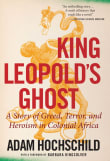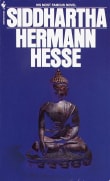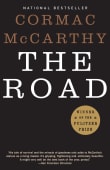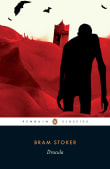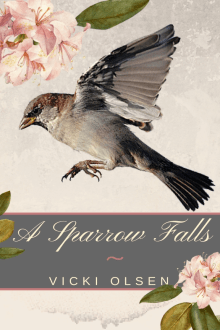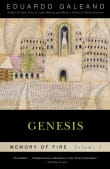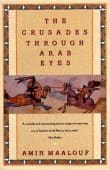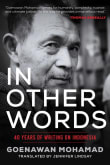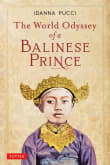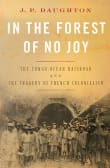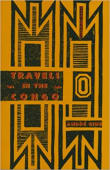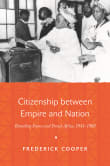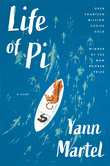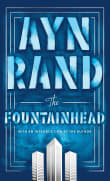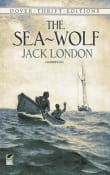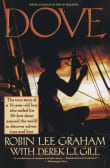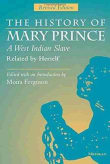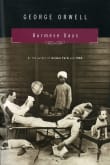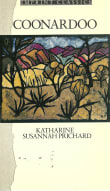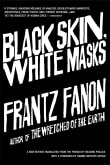Heart of Darkness
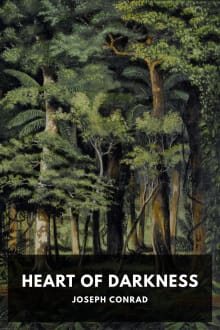
Book description
Although Polish by birth, Joseph Conrad (1857–1924) is regarded as one of the greatest writers in English, and Heart of Darkness, first published in 1902, is considered by many his "most famous, finest, and most enigmatic story." — Encyclopaedia Britannica. The tale concerns the journey of the narrator (Marlow) up…
Why read it?
14 authors picked Heart of Darkness as one of their favorite books. Why do they recommend it?

I liked this hundred-year-old novel because it explores some darker doubts and concerns I have always had about “the hidden heart of mankind unrestrained.” What’s more, the theme of Heart Of Darkness is reflected in the movie Apocalypse Now, with stark modern-day observations on the wounds the violence of war can inflict on the hearts and minds of humans.
From John's list on strong men and women attempting survival in a less moral environment.

This macabre classic offers a glimpse into the darker realms of man and the depravities made capable. This is a book which pits man against his most dangerous foe, himself.
There are no Hollywood endings here. Just the real bloody nature of expansion into the wild Congo by a single ruthless man who infuses the mystical with the divine to maintain a brutal domination.
From Tristan's list on books to read when living on a small island.

Joseph Conrad's book stands as a seminal work exploring the depths of forbidden territories, both physical and psychological.
Set in the mysterious and impenetrable heart of the Congo, Conrad delves into the darkness of the human soul amidst the backdrop of colonialism. Through vivid imagery and haunting prose, he navigates the moral ambiguity of imperialism and the forbidden realms of the unknown.
From Benjamin's list on forbidden territories.
If you love Heart of Darkness...

Joseph Conrad is the grand master of storytelling! A captivating read for those who love this genre of writing, it's totally addictive from beginning to end. It's a story that you never tire of returning to (I’ve lost count of the number of times I’ve read it).
If you are interested in humanity and, in particular, man’s inhumanity to man, you will love this novel. Being that the film Apocalypse Now was based on this story shows its importance.
It's a delightful, must-read, a great start for any reader indulging in Conrad for the first time. I’m a real fan.…
From S.J.'s list on stories of human adventures written in a captivating style.

I had always wanted to read Heart of Darkness as I was a fan of Francis Ford Coppola’s Apocalypse Now, which is based on it.
When my book club read Chinua Achebe’s Things Fall Apart, which is in part a response to Conrad, it seemed like the next logical book. It is a profoundly ironic recounting of European colonialism. Conrad’s prose is luminous, even as the story is dark. The narrative is very compelling as are the characters. I actually read it twice this year!

Conrad’s account of a futile pilgrimage up the Congo, as recounted by the unreliable narrator Marlow, has inspired many more works than its modernist contemporaries, and is by turns terribly unnerving and deeply, darkly comic.
Critics claim that the novel has received more academic analysis than any other English novel, and has thus shaped literary criticism; it has also provoked trenchant creative responses such as Chinua Achebe’s novel Things Fall Apart.
It was adapted for radio by Orson Welles, and for TV by Nic Roeg, but of course the most stunning version is Francis Ford Coppola’s movie Apocalypse Now…
From Nick's list on inspiring creativity.
If you love Joseph Conrad...

Talking about must reads. Everybody has read this one, right?
A masterpiece of narration, written by a Polish immigrant and published in 1902. It is a true classic. If you want be become a writer, you must read this book – and then read it again, and again.
This is storytelling at the highest level. The movie Apocalypse Now is based on this story. And very much so, although the setting is quite different. Almost every scene in the book was used in the movie.
This is a book about a journey; a journey up a river and also a…
From Stefán's list on losing faith in humanity but having a good time.

The atmosphere of this book is downright spooky and mysterious from cover to cover, which is one thing I really love about it. Conrad masterfully unravels the dark tone of the novel with a heavy dose of foreboding till the very end, working its literary lather throughout the fabric of the story like someone creeping up on you from behind as you watch a scary movie. It’s not technically a scientific book per se other than delving deep into the recesses of the dark side of human nature and deviant psychology with regard to Kurtz’s madness. But, on that basis…
From Gordon's list on scientific research on humans or animals.

Seeing Africa and the dangers of Western assumption played out on that raw terrain was Conrad’s genius. The “otherness” of that land, reflected in actions and reactions by Marlow stand as examples of seeing reality dissolve in favor of desperate perspective needed to survive. The depth of truth here, the experience he brings to the reader of a land people think (mistakenly) has changed are unique and prescient.
From Peter's list on the otherness that few get to experience.
If you love Heart of Darkness...

Joseph Conrad, one of the most famous novelists in English in the early 20th century, was born in Ukraine to a Polish family. His first career was in the merchant marine, taking him to many parts of the world ruled by European empires. Heart of Darkness was based on his own observations as a ship captain in the Congo. It’s tough but compelling. Conrad’s indictment of the terrible atrocities committed by ivory traders, in King Leopold of Belgium’s personal fiefdom, shows the brutal treatment of enslaved labourers. But it also has gender at its heart. The fictional Captain Marlow…
From Angela's list on how gender helped empires to rule the world.
If you love Heart of Darkness...
Want books like Heart of Darkness?
Our community of 12,000+ authors has personally recommended 100 books like Heart of Darkness.



